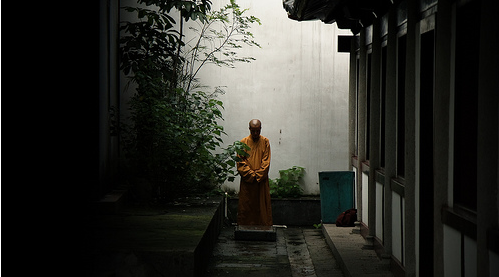There was a post awhile ago over at Moneywatch recently entitled “Perfectionism is a Disease.” It offers three tips to ward off Perfectionism:
1. Allow yourself to be wrong in front of others.
We learn by making mistakes. The only way we understand ourselves is to test our limits. If we don’t want anyone to know we make mistakes, which is how perfectionists tend to behave, we are actually hiding our true selves.
2. Be a hard worker rather than a perfectionist.
Smart people cut corners. The art of being a star performer is knowing which corners to cut. Focus on your goals, and be honest with yourself about whether your goals require perfectionism along the way. A lot of times perfectionism is a way to avoid focusing on goals. Real goals, after all, almost always require a little bit of luck and assistance along the way — factors the perfectionists tend to dismiss.
3. Spend your energy making yourself likable.
Tiziana Casciaro reports in the Harvard Business Review that people are not all that interested in you being super-good at your job. They care if they like you. And, Casciaro found that if someone does not like you, he or she will decide you’re incompetent whether you are or not.
They’re nice tips, but I dislike the notion of referring to perfection as a “disease” as though it is an ailment which needs curing.
Perfection Does Not Exist
For the unfamiliar there is a concept in Zen, and Japanese culture in general, referred to as Wabi-sabi (侘寂), which happens to be one of those incredibly difficult things to translate or communicate in a different language but is summed up in one word in it’s original language. It would be like trying to explain “serendipity” to a new English speaker.
Wabi-sabi is the most conspicuous and characteristic feature of traditional Japanese beauty and it “occupies roughly the same position in the Japanese pantheon of aesthetic values as do the Greek ideals of beauty and perfection in the West…if an object or expression can bring about, within us, a sense of serene melancholy and a spiritual longing, then that object could be said to be wabi-sabi.”
To sum up:
- All things are impermanent.
- All things are imperfect.
- All things are incomplete.
To try to and pretend otherwise is deceptive. Perfection is not an end goal to be achieved, but rather a process and mental state in which to try and envelop oneself. It will never be achieved, but that isn’t the point. The point is the effort, drive and goal.
It’s why when looking at a beautiful, elegant piece of Japanese pottery that appears perfect in all states, you’ll find a chip on the bottom corner. It was put there intentionally by the craftsman as an allusion to the imperfect and impermanent state of nature. One of the more famous stories in regards to wabi-sabi is that of the most famous tea master in Japanese history, Sen no Rikyū:
Early in his life, Sen no Rikyu desired to learn The Way of Tea. Hence he visited the Tea Master of it’s time, a man named Takeno Joo. As a test to whether accept this man or not Joo ordered Rikyu to tend the garden. Eagerly Rikyu set to work. He raked the garden until the ground was in perfect order, and arranged everything in idealized symmetry. Everything was in order and manicured into the most aesthetically pleasing way possible. As Sen no Rikyu finished he surveyed his work – then shook the cherry tree, causing a few flowers to fall at random onto the ground and spoil the “perfect” order.
At that moment Takeno Joo knew Sen no Rikyu would be one the greatest example of wabi-sabi way of life.
When you are at work, you should strive to produce good work and complete your tasks, but resist the Siren’s Song of perfection, it doesn’t exist.














